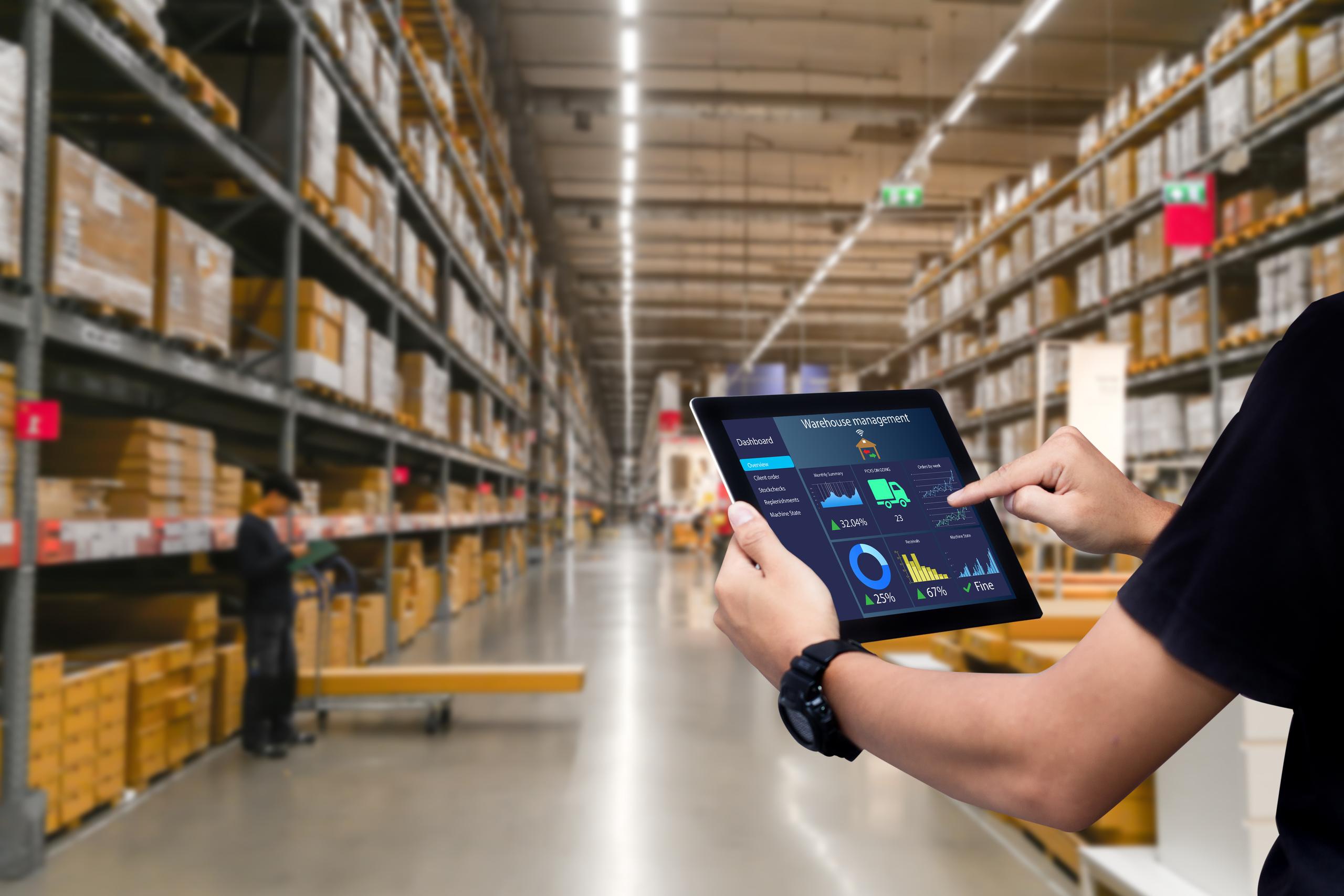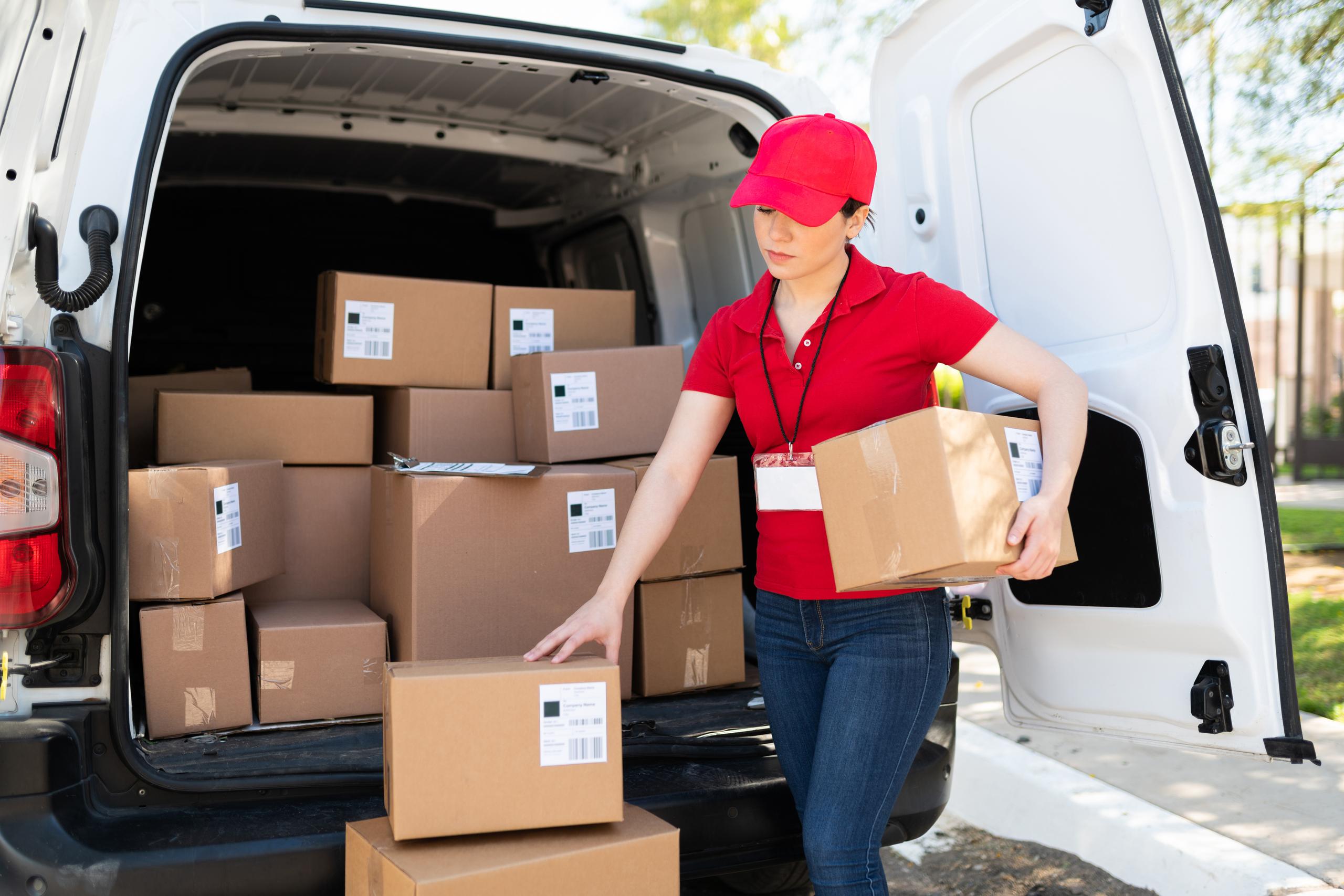How Fulfillment Centres Compare to Warehousing
7 min
- Kaleigh Moore

‘Warehouse’ and ‘fulfillment centre’ are terms often used interchangeably. The truth is, they have very different connotations. While both warehouses and fulfillment centres are large buildings designed to hold inventory for commercial enterprises that sell goods, the services provided and use cases of each can differ. Warehouses primarily store products for long periods, focusing on inventory management. In contrast, fulfillment centres are dynamic; they process orders quickly, packing and shipping products directly to customers. The global ecommerce fulfillment services market was estimated at $109 billion in 2023 and is expected to grow at a CAGR of 14.0% from 2024 to 2030, which illustrates fulfillment centres' expanding role in the rapidly evolving ecommerce landscape.
According to a report by CBRE, the U.S. is expected to need an additional 330 million square feet of ecommerce distribution space by 2025 due to the accelerated growth of online shopping.
Let’s examine each option more closely so you can determine the best ecommerce shipping solution for your business.

What is a warehousing solution?
A warehousing solution is a spacious facility or industrial area that stores bulk inventory for extended periods. This storage centre also often houses equipment like forklifts and containers and has shelves stacked with large quantities of products.
Some warehousing providers are geared toward wholesale fulfillment for businesses that fulfill large quantities of B2B e-commerce orders. Many large retailers have their own warehouses to store excess inventory, but others may choose to rent space in a warehouse instead. Leasing rather than buying warehouse space is typically more cost-effective, especially for small or mid-sized businesses.
Small ecommerce sellers may choose to rent cost-effective spaces such as local lockers or inventory storage units. This allows them to maintain a reserve of inventory and restock as needed when supplies begin to diminish. Further reading: Best ways to cool down your warehouse this summer
What is a fulfillment centre?
A fulfillment centre is a hub for the logistics processes required to get a product from the seller to the customer. It’s a part of the supply chain that handles order fulfillment, from order picking and processing to packaging and shipping. Ecommerce retailers looking to streamline their operations rely on third-party logistics (3PL) providers who use the fulfillment centre to receive, process, and fulfill customers’ orders. A fulfillment centre ensures that online orders reach customers on time, thus relieving ecommerce companies of the hassle of managing this challenging process.
Differences between warehousing and fulfillment centres
Warehousing and fulfillment centres have quite a few differences including duration of storage periods, operational differences, frequencies of pickups, and more. Let’s look at the differences in more detail.
Long-term vs. short-term storage
While a 3PL's fulfillment centre includes aspects of warehousing — such as storing a merchant's products in specific spots — its primary aim is to swiftly move inventory rather than just store it.
Ideally, inventory should not remain in a fulfillment centre longer than a month to avoid hefty warehousing costs. However, sellers should also keep stock ready for shipping ahead of time, ensuring enough inventory is sent to their fulfillment centres. Being active, ready, and creative is important for anyone selling products today.
Product storage is the main purpose of a warehouse or on-demand warehousing solution. Conversely, the role of a fulfillment centre is to meet customer’s shipping expectations, efficiently. Retailers can minimize shipping expenses, decrease transit time, and limit shipping zones by storing their inventory in fulfillment centres that are situated close to their customers.

Operations
In contrast to warehouses, which tend to be more static or inactive, fulfillment centres are characterized by constant activity and a higher degree of complexity in their operations. A third-party logistics provider (3PL) offers a range of order fulfillment services in a fulfillment centre, including:
Receiving inventory
Generating pick lists and picking products
Kitting and assembling items
Packing boxes
Labeling shipments
Managing returns
In a warehouse, the primary activity is centreed around receiving new inventory and dispatching goods. Few other services are provided beyond these core functions.
Big box companies operate similarly — Amazon warehouses and Amazon fulfillment centres treat them like sorting centres and delivery stations. Packages move on a conveyor belt while workers handle small and large orders, sorting and preparing them for shipping with Amazon Delivery or a third-party company like USPS.

Frequency of pickups by shipping couriers
Fulfillment centres often collaborate with multiple shipping couriers to process direct-to-consumer orders. These partnerships allow shipments to be picked up promptly on a daily basis, right after orders are received. This facilitates the timely delivery of orders, and fulfillment of promises made to customers.
For a fulfillment company to offer same-day or next-day delivery guarantees, they need to schedule pick ups of customer orders at specific times daily. Shipping couriers and delivery services provide scheduled shipment pickups that cover both local and international destinations.
Retail fulfillment companies have cutoff times for orders. Customer orders placed by noon would be processed in the fulfillment centre and shipped on the same day. On the other hand, a warehouse would typically need scheduled, less frequent pickups, because it’s more shipping freight and having boxes wrapped together on a pallet is more cost-effective than individual shipping labels.
Most freight companies try to pool inventory from multiple pickup locations for partial truckload (PTL) and less-than-truckload (LTL) shipments, which can delay pickup/delivery time. Accordingly, merchants should factor in a longer turnaround time from prep to pickup when offering delivery-time guarantees.
Benefits of using a fulfillment centre
Here are the main benefits for online sellers who utilize fulfillment companies.
Eliminate storing inventory and packing boxes
Managing a physical space is not ideal, unless you’re a brick-and-mortar retailer. It’s no surprise that most ecommerce businesses try to eliminate the hassle of inventory-storage or dealing with warehousing.
Additionally, if packing boxes and running to the post office every day is not your jam, a fulfillment centre is an ideal alternative. Can’t keep up with your increasing order volumes? Perhaps it’s a sign to use a fulfillment centre. Whether they specialize in wholesale or retail, fulfillment providers take away the worry of packing supplies and post office lines. They give you back the time you need to focus on forecasting sales and growing your business.
Focus on the big picture
Packing boxes and shipping customer orders are necessary to meet consumer expectations, but they can easily be outsourced. As an entrepreneur or ecommerce store manager, you likely have an endless to-do list. Stay laser-focused on the tasks that will help you scale and make money.
By reducing your time spent on order fulfillment, you can instead focus on marketing, customer service, and product management. This will help your ecommerce business be less operational and more strategic.
Leave it to the experts
Inbound and outbound logistics can be complex. A fulfillment centre is like a well-oiled machine with many moving parts that must simultaneously work together. From order processing to inventory management and planning for peak shopping seasons, fulfillment companies have seen it all.
A single fulfillment centre handles operations for innumerable ecommerce businesses and ships out millions of orders regularly. As a result, their volume and experience make them a strategic partner.
Fulfillment companies can also drive greater efficiencies in everything: optimizing inventory management, streamlining order processing, and accelerating shipping times. They can also reduce overhead costs by leveraging bulk shipping discounts, minimizing warehouse expenses, and automating repetitive tasks.

Automate warehousing and fulfillment
Technology is at the centre of modern fulfillment companies’ fulfillment services. This means that each step of the fulfillment process is documented in real-time.
As an ecommerce business, this means you can track the status of your inventory and every order in the fulfillment centre without having to be physically present.
This is possible due to built-in integrations with ecommerce platforms and market keepers. Every customer order is automatically sent to the fulfillment centre to get picked, packed, and shipped out. Once the product is shipped, the tracking info is sent back to the ecommerce store and shared with the customer.
How can a fulfillment centre help grow your business?
What’s holding back your business? If it’s fulfillment, a professional fulfillment centre could be the answer you’re looking for. Quality order fulfillment is essential for maintaining customer satisfaction in ecommerce operations.
By using a professional service for your order fulfillment, you can minimize mistakes and loss, offer a seamless omnichannel experience for your customers, and free yourself from the hassles of handling order logistics. With a leading third-party logistics provider (3PL) you can focus more on growing your business and less on warehouse management issues or addressing customer concerns, so your operations run along efficiently.
Further reading: How to negotiate a warehouse tenant improvement budget Everything you need to know about smart order routing in Veeqo





